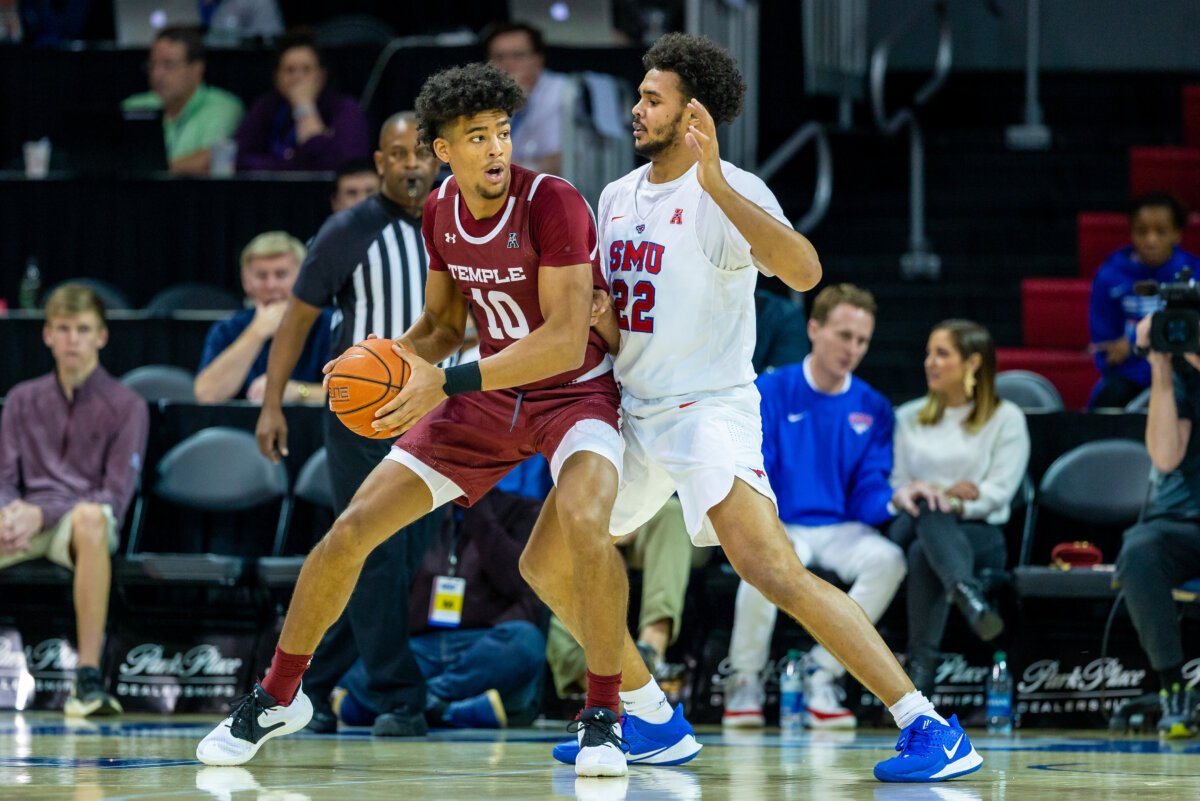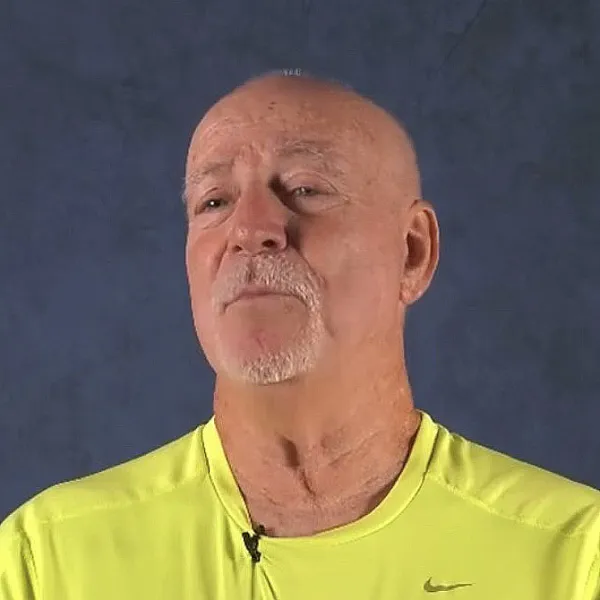Limit Your Choices —
Expand Your Game
How Fewer Options Can Open Up Your Game

My mind works in mysterious ways. If you know me, you already know that. If you don’t know me, you are about to find out.
I am writing this while in the throes of the Coronavirus pandemic. I sincerely hope that everyone is safe and healthy. I also hope we get to a point where, when you read this, you will be able to say, “Pandemic, what pandemic? I don’t remember that.”
When I have free time (and I have plenty right now), one of the things I like to do is write. Because I am always thinking of basketball, I like to write about basketball. I also read a lot. I research a lot. I listen to people a lot. Not necessarily about basketball, but about a lot of things. But, because I am always thinking about basketball, whatever I read, whatever I hear, I relate to basketball.
Recently, I came across this article about supermarkets. Supermarkets? Yes, supermarkets. What does that have to do with basketball? I told you my mind works in mysterious ways.
Here is a link to the story: https://www.mashed.com/222736/why-some-of-your-favorite-groceries-wont-be-making-a-comeback/?mode=gn
In short, the article is about how, during the pandemic, many supermarkets have had to get leaner. They had to make some choices about what products they were going to carry to maximize their profits. They have had to clear a lot of products off their shelves and concentrate just on the things that were selling well and leave out those that only had a selected clientele. Sure, they had to deal with some complaints, as customers might not have been able to find everything they were looking for, but fewer people were coming in to shop and they had to cater to the masses.
As the article continues, the writers make the point that, when the pandemic is over, those products that were eliminated might not return. And that would not necessarily be a bad thing. The business would learn that leaner is better and would be more profitable as expenses would also fall. They would become more efficient, be able to offer things that more of their customers want, and overall, become a better business. In short, having less selection, fewer options would make them a better business.
This is basketball. What in the world am I talking about?
Well, when I read this article, my mind immediately went to basketball.
What does a supermarket have to do with basketball?
Well, I believe that players work on and try to do too many things. I am continually amazed at the things the players are taught and the things that they practice. I continually see players working on not only things that they never do in a game, but things that rarely, if ever, even happen in a game. For every rep spent on practicing something a player is never going to do in a game, that’s a rep that isn’t spent working on something that he will do.
I am a big believer in the “Pareto Principle.” If you are unfamiliar, it is also called the “Law of the Vital Few.” It states that 80% of the effected comes from 20% of the cause. Or, in other words, 80% of your success comes from 20% of your work.
It is largely a business principle but it is amazing how applicable it is to many areas of life. When applied in business, it can mean that 80% of your profit comes from 20% of your products, 80% of your sales are made by 20% of your salesmen, 80% of your income comes from 20% of your customers. In restaurants, 80% of the sales come from 20% of the menu. In analysis, it’s amazing how accurate it is. When a business hits rocky times and call in a consultant to help it back to profitability, normally the first thing that the consultant does is pare back the offerings. One of the most visible examples of that is McDonalds. Coming out of the Great Recession in the early 2000s, Mcdonald's was in real trouble and was hemorrhaging money. They needed to make a change in their business. Their menu had gotten too large and they were spending a lot of money on products that customers weren’t going to buy. They had gotten away from the reason that people go to McDonald's, to buy hamburgers. Once they pared away all the products that their customers weren’t going to buy, they quickly returned to the powerhouse company that we are familiar with.
In basketball, it works just as well. As a coach, if you do an analysis of your team and your games, I am sure you will find the same things. I am sure you will find that 80% of your success comes from 20% of what you practice, 80% of your scores will come from 20% of your plays, 80% of your production will come from 20% of your players.
Even more importantly, as a player, you will find that 80% of your successes will come from 20% of what you work on, 80% of your made shots will come from 20% of the shots you practice, 80% of your scores will come from 20% of the situations you practice. Now, to be clear, I am not saying you will shoot 80%. I am saying that 80% of the shots you make, regardless of your overall shooting percentage, will come from 20% of your shots.
Why is that important to know? To answer that, I’ll ask you another question. What is it that makes a good player? When I ask that question I often get answers like, “Hard work,” or, “Toughness,” etc. While those might be true, the real answer is, “Doing what you are good at.” If you want to be a good player, you have to do what you are good at and not the things that you are not good at. If you can do the things that you are good at more than the things you’re not good at, you might have a chance at being pretty good.
Aristotle, the ancient Greek philosopher, said, “You are what you continually do. Therefore, excellence is not an act but a habit.” If 80% of your success comes from 20% of the things you do, and if you are what you continually do, how good do you think you could be if you took your 20%, got really good at it, and stopped doing the 80% things that you weren’t good at?
While basketball is not a game of perfect, it is a game of results. It is a meritocracy, the ones who are successful move ahead. If you want to be a good player, do the things you are good at, do them as often as you can to the best of your ability. How do you do that? When you practice, practice what you will do in games. Practice them a lot. Then, after you work on the things you do in games, if you want to expand your game, work on new things at the end of your workout. Don’t take time away from the things you are good at. Use the time you have leftover to work on the things you want to expand on. Remember, every minute you are working on something else is a minute you are not working on the things that make you a good player. When you think about it, which makes a better player, being really good at 3 or 4 things that actually happen when you play or being mediocre at 10 things of which only 5 of those things occur in games? My money is on the former.
To really become effective, you have to look very critically at your game, your role on the team, and be honest about what you do well, what you do poorly and what you need to be successful. As a player, should you really spend a large chunk of practice time on putting the ball on the floor when you are a catch-and-shoot player? If you really want to become effective, spend 80% of the time working on getting the ball in areas and with actions that put you in a position to catch and shoot. Then, with the time left, work on putting the ball on the floor. As a coach, should you really spend a large chunk of time working on your 1-2-1-1 pressure when, in games, you spend a majority of your time playing a 2-3 quarter-court zone?
Like the supermarket or the restaurant that has decided to pair down their offerings to better serve their customers and make more profit, you can get better quickly when you do what you are good at when you practice what happens in games and let the other stuff go.

Don Kelbick
Coach Don Kelbick has had 27 years of coaching experience, 25 at the college level including 14 years as a head coach and 10 years as a Division I assistant including stops at Hofstra University, Marist College, Keene State College, and Florida International University. In 2 years as a high school coach, his teams produced 6 Division I players and was ranked #1 in Florida 28 out of a possible 34 weeks. In addition to coaching he has scouted for NBA teams, including the Knicks and the Hawks, and served as a general manager in the USBL.